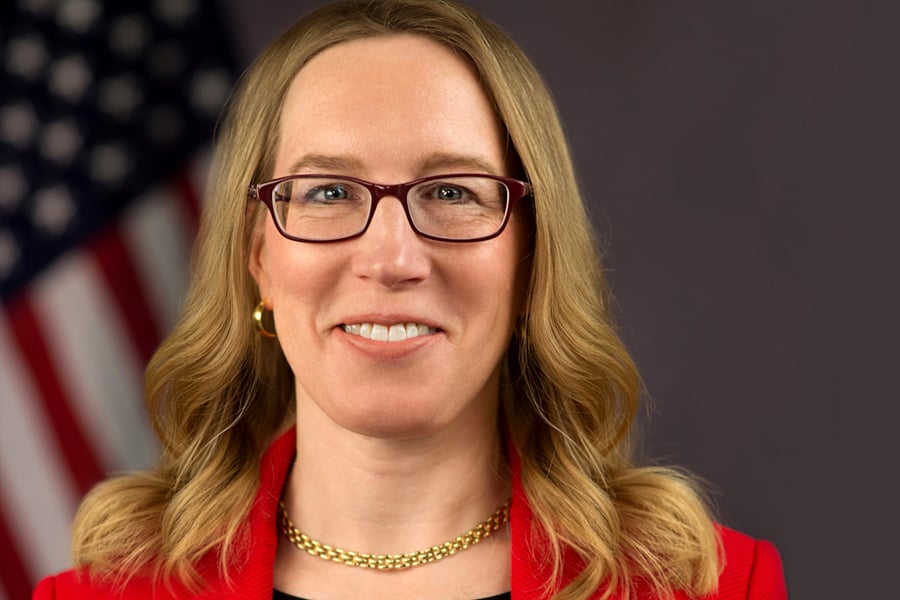Members of the Securities and Exchange Commission have defended their agency's forthcoming final advice-reform rule in exchanges over the last couple days.
SEC commissioner Hester Peirce said the proposal to raise advice requirements for brokers will result in a standard for them that is stronger than the fiduciary duty investment advisers must meet.
"We have this new standard, which is something more than suitability," Ms. Peirce said at an Institute for Portfolio Alternatives conference in Washington on Tuesday. "When you lay it side-to-side against the fiduciary standard, I think one could argue that it's a stronger standard because it does require mitigation or elimination of conflicts in a way the fiduciary standard does not."
The SEC released its reform proposal more than a year ago and may introduce
final regulations within weeks. The centerpiece of the package is
Regulation Best Interest, which SEC chairman Jay Clayton asserts is a step up from the current suitability requirement for broker recommendations to clients. Ms. Peirce concurred — and went a step further.
But House Democratic lawmakers and investor advocates assert Regulation Best Interest is
weaker than the fiduciary standard. They are concerned that Reg BI, as it is known, does not detail how brokers should mitigate conflicts.
"Sadly, the SEC has adopted such a weak interpretation of the [Investment] Advisers Act fiduciary standard that it may be fair to say that Reg BI is stronger, assuming the SEC doesn't allow disclosure alone to satisfy the mitigation requirement," Barbara Roper, director of investor protection at the Consumer Federation of America, wrote in an email. "But that is hardly an endorsement of Reg BI. Instead it just highlights the missed opportunity to do something meaningful to improve investor protections."
In her appearance at the IPA meeting, Ms. Peirce also said preserving investor choice is important.
"I want to make sure that other [broker] option is available, especially for people without much money and who can't afford to pay advisory fees — especially if you're staying in the same investments for a long period of time," she said.
In Senate testimony Wednesday, Mr. Clayton reiterated that it is important that the advice-reform package regulates brokers and advisers separately to foster competition.
In response to a question from Sen. Chris Coons, D-Del., Mr. Clayton said the new SEC rule would maintain options for financial advice between brokers' "fee-for-service model" and advisers' "fee-for-account model."
Reg BI, he said, addresses abuses on the brokerage side. There were complaints that "there was too much activity that people said was lawful but made you sick. We need to fix that," he said.
Mr. Clayton said Reg BI aims to ensure investors receive similar care from brokers and advisers.
"It is my intention that, regardless of whether the retail customer chooses a broker-dealer or an investment adviser, the retail customer will receive recommendations (from a broker-dealer) or advice (from an investment adviser) that are in the best interest of the retail customer, and that do not place the financial professional's interests ahead of the interests of the retail customer," Mr. Clayton wrote in his prepared testimony.
In order for the SEC to approve a final Reg BI, three of the current four members must vote in favor. Ms. Peirce and fellow Republican member Elad Roisman are expected to support the regulation along with Mr. Clayton, while Democratic commissioner Robert Jackson Jr. is
expected to oppose it. A fifth Democratic seat on the commission is open.
No date has been set to release the final Reg BI, Mr. Clayton told reporters after the Senate hearing.
"We're getting a lot closer," he said.







